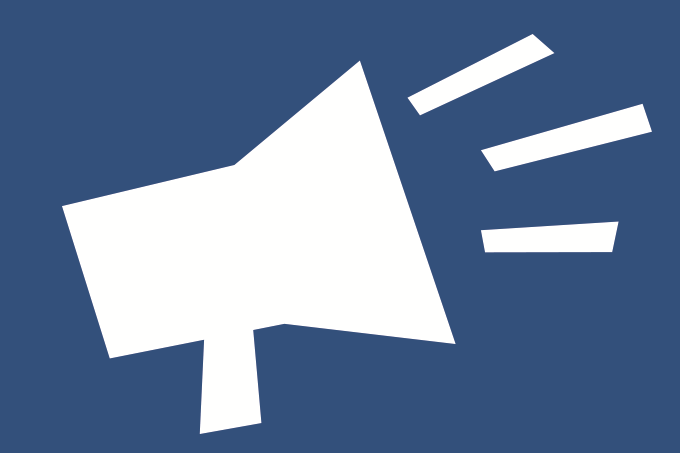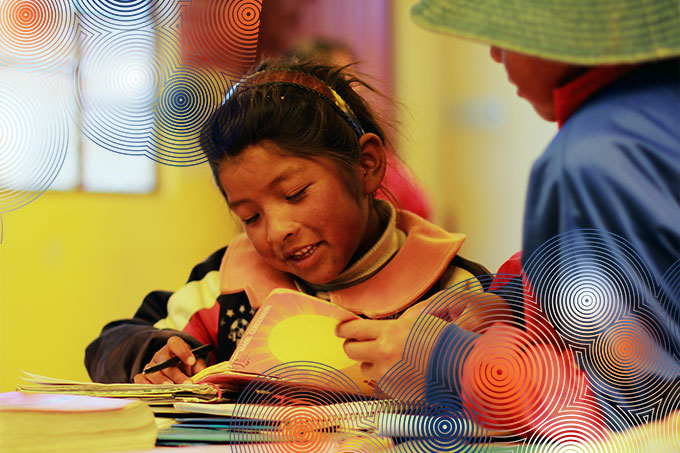Call for Expressions of Interest: Global Learning Partners to support Education Out Loud (EOL) - CLOSED
Introduction
This call for Expression of Interest seeks to establish a roster of Global Learning Partners (GLPs) for the Education Out Loud Programme (EOL), the civil society advocacy and social accountability funding mechanism of the Global Partnership for Education (GPE) managed by Oxfam Denmark.
Education Out Loud is a fund for advocacy and social accountability that supports civil society to be active, representative, and influential in shaping education policies to better meet the needs of communities, especially of vulnerable and marginalized populations.
Global Learning Partners are envisaged to aggregate the learning and evidence EOL grantees are producing across different geographies and thematic areas, and to help generate higher-level reflections and strategic lessons to benefit civil society in the education sector and the broader work on social accountability. They will contribute to synthesizing the EOL-portfolio- and field-wide learning about civil society strategies and mechanisms to influence educational policies and increase accountability in the education sector. They will analyse and draw general conclusions on the results of those interventions and on their sustainability and scalability. Global Learning Partners may also be requested to carry out analyses of issues of critical importance to EOL and its grantees.
As EOL is evolving, Global Learning Partners are expected to raise critical questions and provide recommendations to help refine EOL strategies and focus the attention of EOL grantees on important new areas for further exploration and engagement.
Activities supported by the learning partners selected through this call for expressions of interest are expected to start in January 2022.
Objectives
The overall goal of EOL is to enhance civil society capacity to further GPE 2025 goals of accelerating access, learning outcomes and gender equality through equitable, inclusive, and resilient education systems fit for the 21st century.
EOL has the following three objectives:
- Strengthen national civil society engagement in gender responsive education planning, policy development and monitoring;
- Strengthen civil society roles in promoting the transparency and accountability of national education sector policy and implementation; and
- Create a stronger global and transnational enabling environment for national civil society advocacy and transparency efforts.
The Learning Agenda
EOL has a specific focus and interest on learning and capacity building of grantees in its three operational components, each relating to the three objectives listed above: National Education Coalitions (NECs) funded under Operational Component 1, local and national CSOs funded under Operational Component 2, and CSO transnational alliances under OC3. Learning is a core implementation strategy in all Operational Components of EOL with a focus on capacity, collaboration, and learning.
The Learning Agenda approach aims at supporting grantees in developing organisational, thematic and advocacy competences through capacity building, learning collaboratives and learning and adaptive management to enhance relevance, effectiveness, and efficiency of program interventions. As part of the learning agenda, each grantee has developed a learning plan which outlines its learning needs and objectives.
In the EOL architecture, the four Regional Management Units (RMUs) have established pools of learning partners in their respective regions. The RMUs work with grantees and learning partners at the regional level to facilitate appropriate responses to grantees’ learning needs and to support peer learning mechanisms where relevant. This work is continuing and feeds into EOL’s overall learning.
The role that Global Learning Partners are expected to play - as implied by the global descriptor- is to focus on cross-cutting efforts at strategic and programmatic levels, which will assist in identifying emerging evidence across the portfolio and advise on how EOL stakeholders may address important changes in the contexts in which EOL operates.
Methodology
Selected Global Learning Partners will support EOL in generating higher-level learning from the EOL portfolio, aggregating and synthesizing evidence and knowledge gathered through the EOL grantees in the different operational components. This will be done through the following means:
- Production of in-depth research reports and think pieces on selected themes and issues
- Production of series of brief and accessible notes on identified priority operational, thematic, and strategic issues
- Convening learning platforms, including online webinars, panels, and interactive discussions
- Facilitate and support the establishment of learning collaboratives within the EOL portfolio and with relevant actors on specific themes identified as priorities and joint learning needs, based on the interest of those groups
- Facilitating dialogue and learning between civil society groups in the education sector and peers in other sectors (such as health, climate, fiscal justice) on effective strategies to advance policy changes and accountability
A non-exhaustive list of themes and issues could include: civil society strategies to advance and promote change for gender equality and girls’ education; strategies for the inclusion of marginalized children; youth involvement and mobilisation; working in conflict-affected and fragile contexts; Covid-19 and its impact on equity in access to education; challenges in civil society’s work on learning outcomes; new forms of civil society advocacy, including exploring the potential of virtual advocacy approaches.
Desired qualifications and competencies
- Experience with and knowledge of the education sector and of civic engagement in education; as well as with the fields of advocacy and social accountability;
- Demonstrated ability to develop learning agendas and performance monitoring frameworks across multiple partners in different geographic regions;
- Experience working across thematic silos and facilitating learning and collaboration between groups working in different sectors;
- Experience in facilitating collaborative and sustainable partnership between civil society and academics / researchers;
- Previous experience synthesizing lessons learned and strategic learning approaches;
- Strategic approach to capacity building and evidence of nurturing and supporting development of capacity within learning networks, including how this is measured and assessed;
- Evidence of collaborative outputs produced with learning network members;
- Evidence of demand for partnership or/and services and advice from civil society organizations
- Diversity of staff and resource people and of their areas of expertise
- Presentation of strong grounding in the global South;
- Capacity to work with human rights-based approaches, differentiated analysis and gender perspectives;
- Knowledge of and experience with working in conflict or fragile contexts;
- Demonstrated expertise and experience in use of Information Communication Technology (ICT) to deliver capacity building initiatives
Please note that organisations/institutions receiving funding from Education Out Loud, from any of the operational components (OC1, OC2 or OC3), are not eligible to apply for this call.
The call
Oxfam Denmark invites applications from expert organizations or institutions (NGOs, INGOs, Academic/Research, Consultancies, etc.), or consortiums of such organizations, who will act as Global Learning Partners (GLPs) to support EOL as a whole.
Interested applicants are required to provide the following:
- Clear statements of interest, motivation, and rationale for engagement in the learning component of EOL
- Proposed approach(es) to achieving the learning goals;
- Clear articulation of strategy to engage EOL grantees and other relevant stakeholders
- Capacity statement of the organization to implement the proposed program
- Past experiences and achievements in the related fields of civil society in the education sector and social accountability in general
Those are detailed further in the proposal template for the application.
Submission details
Please use the proposal template to apply for the learning partner.
Applications must be written in English and sent by email to isa@oxfam.dk and ts@oxfam.dk. Please mark ‘Application for Global Learning Partner’ in the subject line.
Applications should be received no later than 10 November (CEST).

